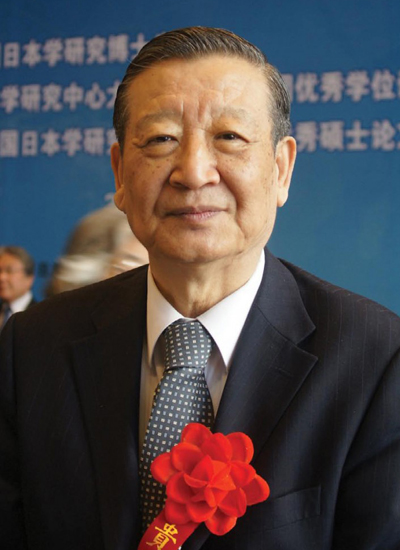Founder talks about TAC, translation
- By He Shan
 0 Comment(s)
0 Comment(s) Print
Print E-mail China.org.cn, December 5, 2012
E-mail China.org.cn, December 5, 2012
|
|
|
Liu Deyou, the founder of the Translators Association of China (TAC), sits down to talk about the process of the founding of the TAC in an interview with China.org.cn.[File photo] |
"Never in my wildest dream did I imagine I would have the opportunity to witness the foundation of China's translation association,' said Liu Deyou, who once worked with China International Publishing Group (CIPG), China's largest foreign-language publishing group.
After a 15-year stint as a correspondent in Tokyo, Liu Deyou returned to Beijing and landed a job at CIPG in June 1978. In the following year, he was appointed vice president of CIPG.
Several years later, in 1981, he was assigned to undertake the preparatory work for the foundation of China's first and only translation association—the Translators Association of China (TAC).
Recalling the process of preparing for the association, Liu said two episodes remain etched on his mind.
He recalled the galaxy of renowned scholars and experts putting in their two cents and weighing in with valuable suggestions during an important meeting discussing how to establish the association.
"Among those, there were Ji Xianlin, Zhu Guangqian, Qian Weichang, Sun Yefang, Meiyi, just to name a few," he said. "There were so many well-known translators out there."
The other event that left a lasting impression was Cheng Fangwu being appointed honorary president of the TAC. Cheng Fangwu was the first man in China to translate the Manifesto of the Communist Party, which was considered a founding document of Communism.
This year marks the 30th anniversary of the foundation of the TAC. To celebrate the occasion, a commemorative meeting has been in preparation.
"Over the past three decades, the TAC has gone through several tremendous changes," said Liu. "The biggest change has been TAC's ever-closer correlation with the country's development, as well as with its reform and opening-up,"
With growing awareness for the concepts of responsibility and service, the TAC has gained an increasing domestic and international influence.
Liu said he was very happy to see that the association has been actively engaged in higher-level international exchanges and has gained world-wide acknowledgement.
As the only national association in the field of translation, the TAC has made full use of its resources to initiate a plethora of events, including academic exchanges, translation competitions, training programs and other translation-related seminars. TAC is also the only authorized registration body for practitioners who wish to take the China Accreditation Test for Translators and Interpreters —CATTI.
In Liu's eyes, all those initiatives and accomplishments form a persuasive testimony to TAC's growing influence in the translation sector.
Commenting on Chinese culture, Liu believed that it should take a more open posture and still requires more innovation.
"We should speak to the outside world in a way that foreigners love to hear and listen to, which in turn sets higher requirements for us translators," he said. "This is an arduous, yet very glorious task now facing Chinese translators."
Additionally, Liu continued to advise young translators not to divorce theory from practice, saying that translations, no matter whether they concern interpretation or written translations, should be based on practice.
He also touched upon the topic of what translation essentially is. According to Liu, translation should be about a transformation between two languages, two thoughts, two meanings and two cultures.
He believed that any translation manifests a translator's comprehensive capabilities.
Profile
Liu Deyou, translator and journalist, is one of the founders of the Translators Association of China (TAC), and previously acted as vice president of China International Publishing Group as well as assistant to the minister at the Ministry of Culture.







Go to Forum >>0 Comment(s)